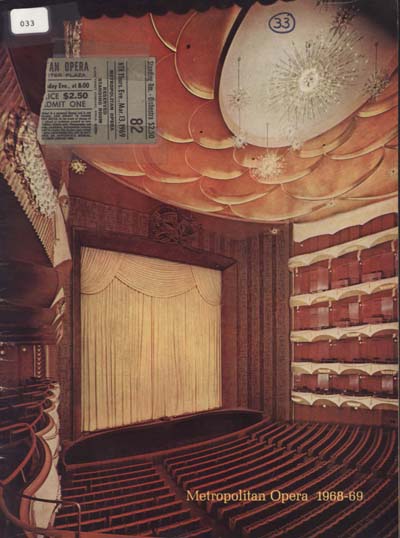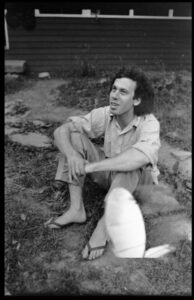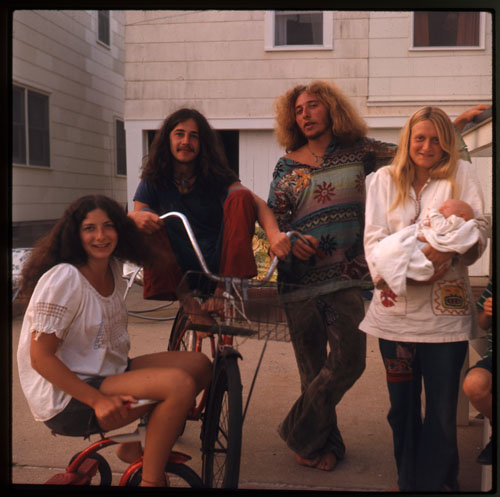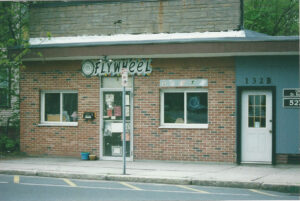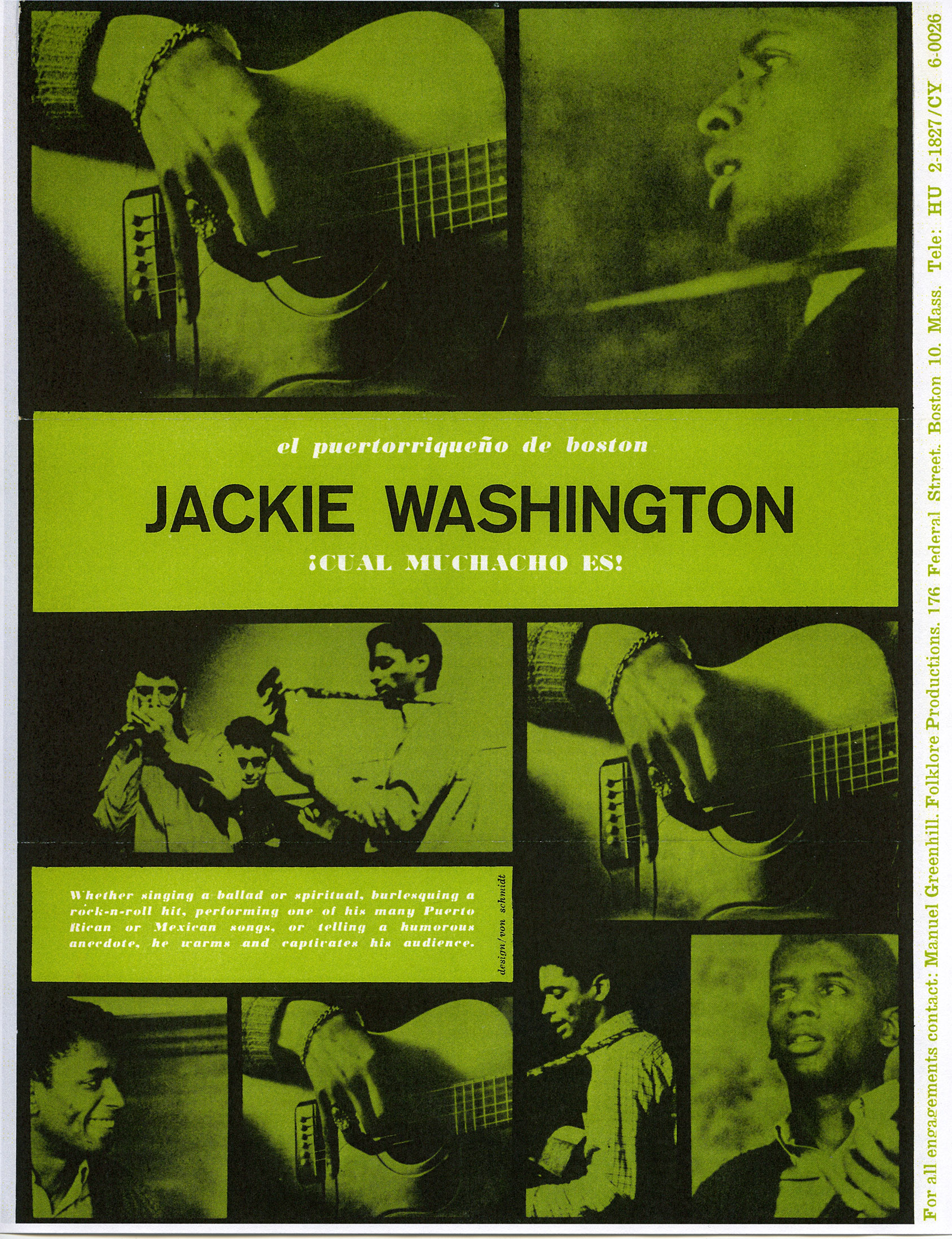Part of: Famous Long Ago Collection
Thomas Weston Fels is an artist, author, art historian, writer, and curator. Born in Baltimore, Maryland, 1946, Fels spent his teenage years at The Putney School, a private boarding school in Southern Vermont. Upon completion, Fels enrolled in Amherst College, and after graduating in 1967, moved to the Montague Farm commune.
Fels lived on the farm from 1969 to 1973, and was an integral member of the larger communard community, extending from the Wendell Farm and Johnson Pasture, to Packer Corners and the Tree Frog Farm. While there, Fels associated with prolific writers, artists and photographers of 1960s counterculture, such as Harvey Wasserman, Ray Mungo, Peter Simon, and others.
Sometime after leaving the commune, Fels returned to school, attending Williams College. He graduated in 1984, earning a Masters in the History of Art. Following the completion of his degree, Fels was awarded multiple prestigious fellowships. In 1986, he became a Chester Dale Fellow of the Metropolitan Museum of Art, while between 1998-1999, he was a Fletcher Jones Foundation Fellow of the Huntington Library, California. His career has seen him employed by numerous museums across North America, ranging from the J. Paul Getty Museum of Art in California, the Elizabeth de C. Wilson Museum in Vermont, and the Canadian Centre for Architecture in Quebec.
Fels has organized many exhibitions throughout his career, some internationally. In California, Fels’ exhibition Carleton Watkins: Western Landscape and the Classical Vision was presented at the J. Paul Getty Museum of Art; while his exhibition Fire and Ice: Treasures from the Photograph Collection of Frederic Church at Olana, was shown at both the Dahesh Museum in New York, and the Van Gogh Museum in Amsterdam.
In addition to his curatorial duties, Fels’ work as a researcher and writer has led him to publish a variety of catalogs and companion pieces to his exhibitions alongside various articles and books. In 1989, he published O Say Can You See: American Photographs 1839-1939, and in 1994, he edited a single issue of Farm Notes, in some ways a successor to the Montague Commune’s Green Mountain Post (formerly New Babylon Times). In 2008, Fels published the memoir Farm Friends, reflecting on his life, the counterculture era, and his time on the Montague Commune. In the same year, Fels helped found the ‘Famous Long Ago Archive’ at the University of Massachusetts Amherst; collecting the personal papers of several members of the communard community. These collections contain articles, manuscripts, photos, posters, oral histories, and more. He continued to reflect on the Montague Farm, publishing Buying the Farm in 2012, providing an in-depth history of the commune, connecting with communards decades later, while chronicling the farm from its beginning in 1968 through the following thirty-five years of its existence.
Since 2013, Fels has been showcasing his unique cyanotypes throughout the American Northeast, and by 2015 his art would take him to Europe and the United Kingdom. In 2016, his large, life-sized renderings were subject to sale at one of the world’s most renowned auction houses, Christie’s London. Beyond his photography and historical work, Fels can be found giving lectures throughout New England, or at his home in Southern Vermont.
The Thomas W. Fels Montague Farm Collection reflects the work of the many friends he made while living on the Montague Farm. Their works make up the bulk of the collection, containing articles, manuscripts, publications, photographs, posters, and audio recordings. Of particular interest is the 25th Anniversary reunion of the Montague Commune. The 10-day celebration is memorialized through photos, audio recordings, and a publication.
Gift of Thomas Fels, 2008
